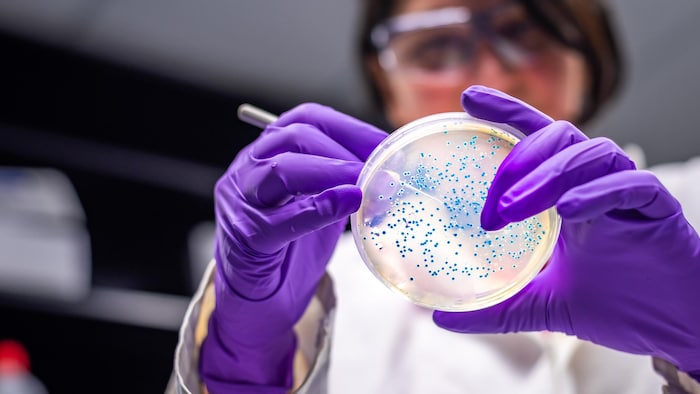Open in full screen mode Certain microbes can contribute to carbon capture, according to specialists. Speech synthesis, based on artificial intelligence, makes it possible to generate spoken text from written text . Faced with climate change, “microbes can be part of the solution,” says Lisa Stein, professor of microbiology and climate change at the ;University of Alberta. Certain microbes, such as methanotrophs, consume methane in the atmosphere and can help control greenhouse gases. Mary E. Lidstrom, a microbiologist at the University of Washington, has been studying bacteria that grow from methane for 50 years now. A few years ago, she became interested in developing technology that could make it possible to use these bacteria to remove methane from gas flows and thus help slow climate change. In recent years, there has been growing interest in finding ways to use microbes to help combat climate change, she explains. However, it is difficult to make this technology effective on a large scale. Mary E. Lidstrom notes that it would be feasible to use this technology in places where the concentration of methane in the air is high. She talks in particular about landfills, leaking gas wells, dairy farms and even livestock farms, where a large quantity of methane is emitted. However, this technology remains at laboratory scale for the moment. Loading ELSE ON INFO: Olympic Stadium: the roof and the ring will ultimately be replaced Our goal is that in two or three years we will have a pilot project to implement in the field to demonstrate this technology. That's when we'll start raising venture capital to scale and commercialize it, says Mary E. Lidstrom. Certain microbes can also emit greenhouse gases. However, Lisa Stein points out that when the ecosystem is balanced , the process of methane production and consumption balances naturally, and the amount emitted by microbes is minimal. However, climate change is impacting microbes and leading to greater production of greenhouse gases by them. Lisa Stein adds that it is possible to manipulate the ecosystem to favor the consumption of methane in microbes. His research attempts to create suitable habitats for this cycle to return to balance. We can also find ways to prevent microorganisms from producing greenhouse gases and improve consumption processes, in order to shift the balance of greenhouse gas production towards consumption. A quote from Lisa Stein, professor of microbiology and climate change at the University of Alberta To reduce the country's methane emissions, Lisa Stein believes microbes need to be included more in research and discussions, although they came later in the conversation about climate change. If you look at how the COP meetings are organized or how the IPCC reports started, it was mostly chemists and physicists who noticed the increase in greenhouse gases, she notes. Lisa Stein adds that conversations also need to be had about nitrous oxide. Emissions of this gas are increasing due to human activity. This greenhouse gas has effects 300 times more powerful than carbon dioxide, she points out. With information from Liam Harrap
Olympic Stadium: the roof and the ring will finally be replaced
Microbes, a possible solution to climate change

